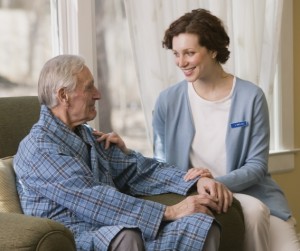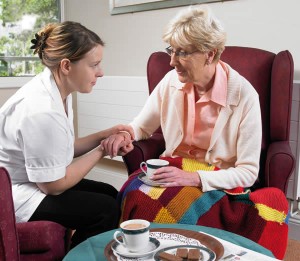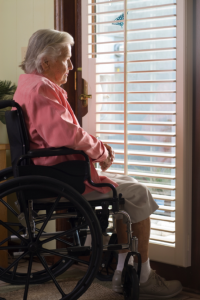
The media’s portrayal of the elderly has, especially in recent years’ television commercials for certain senior services and products, seemed awkward and comically overdramatic. Yet many of these commercials illustrate a threat that is often very real for elderly persons — social isolation. Seniors are particularly vulnerable to accidents and sudden health issues (such as heart attacks); but, because they are habitually alone, no one is present to provide help. These tragedies can be easily prevented, yet many seniors remain isolated.
Some scientists believe that beyond this much-needed assistance, visitors can provide a crucial benefit to the elderly: company. Many elderly individuals report that their lack of interaction with others causes them to feel lonely. Loneliness is often thought of as a necessary consequence of social isolation.Yet, while isolation and loneliness have an intimate relationship, many isolated individuals claim they do not feel lonely, and many sociable individuals claim to in fact feel lonely. As a result, scientists have begun to question if social isolation, loneliness, or a combination of both has the most significant impact on mortality rates in the elderly.

To determine if social isolation and loneliness impair health independently, or if social isolation impairs health through loneliness, Andrew Steptoe of the University College London and a team of colleagues conducted a recent study on 6,500 men and women aged 52 and older. Social isolation was measured through “contact with family and friends and participation in civic organizations,” whereas loneliness was measured by a questionnaire. After adjusting for “demographic factors and baseline health,” the researchers found a significant association between social isolation and mortality rates, yet no such association existed between loneliness and mortality rates. Social isolation, they conclude, is independent of loneliness — and is far more fatal.
While this study presents persuasive evidence that social isolation and not loneliness has increased mortality rates among the elderly, the debate is far from settled. Other studies have found evidence to the contrary, and the scientific community will likely continue investigating until a consensus has been reached.

Though controversial, this study explores an area of information that is important for companies, families, and governments. If social isolation is indeed strongly associated with mortality rates, both government policies and family decisions regarding the elderly ought to aim to reduce their seclusion. Putting loved ones into nursing homes, for example, is often considered unpleasant or undesirable, yet this research suggests it may be in their best interest. From a business perspective, this study may provide useful evidence for the efficacy of nursing homes and similar programs. Firms offering services to help monitor or provide company for elderly individuals may be more valuable than they may seem — in spite of their comical commercials.
